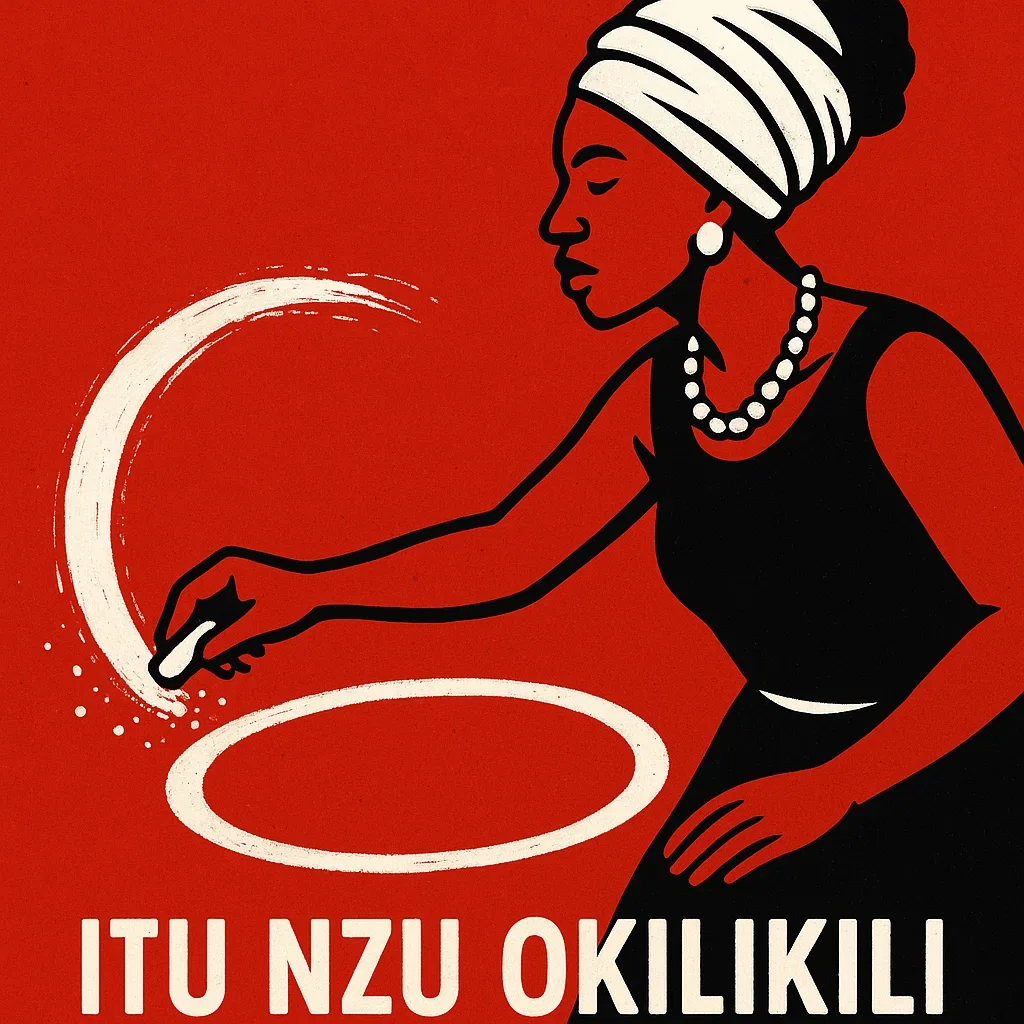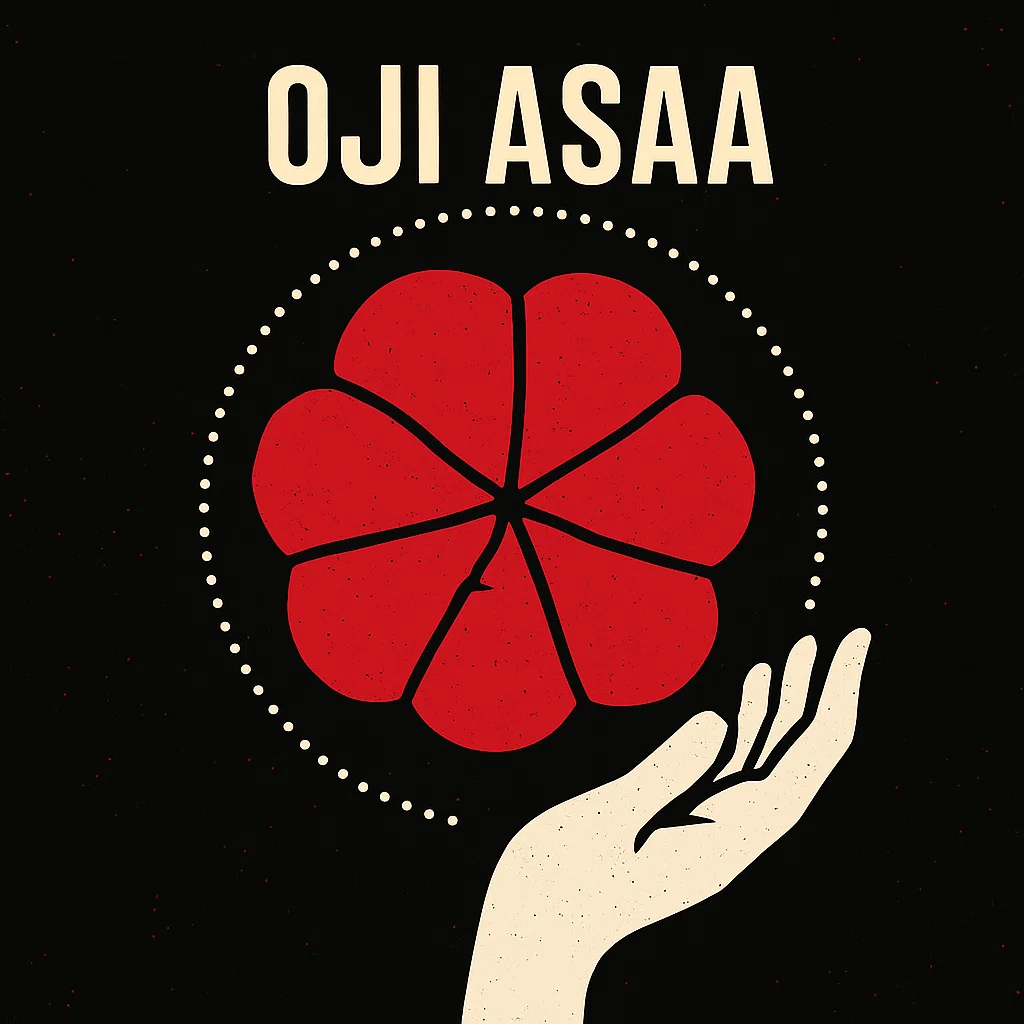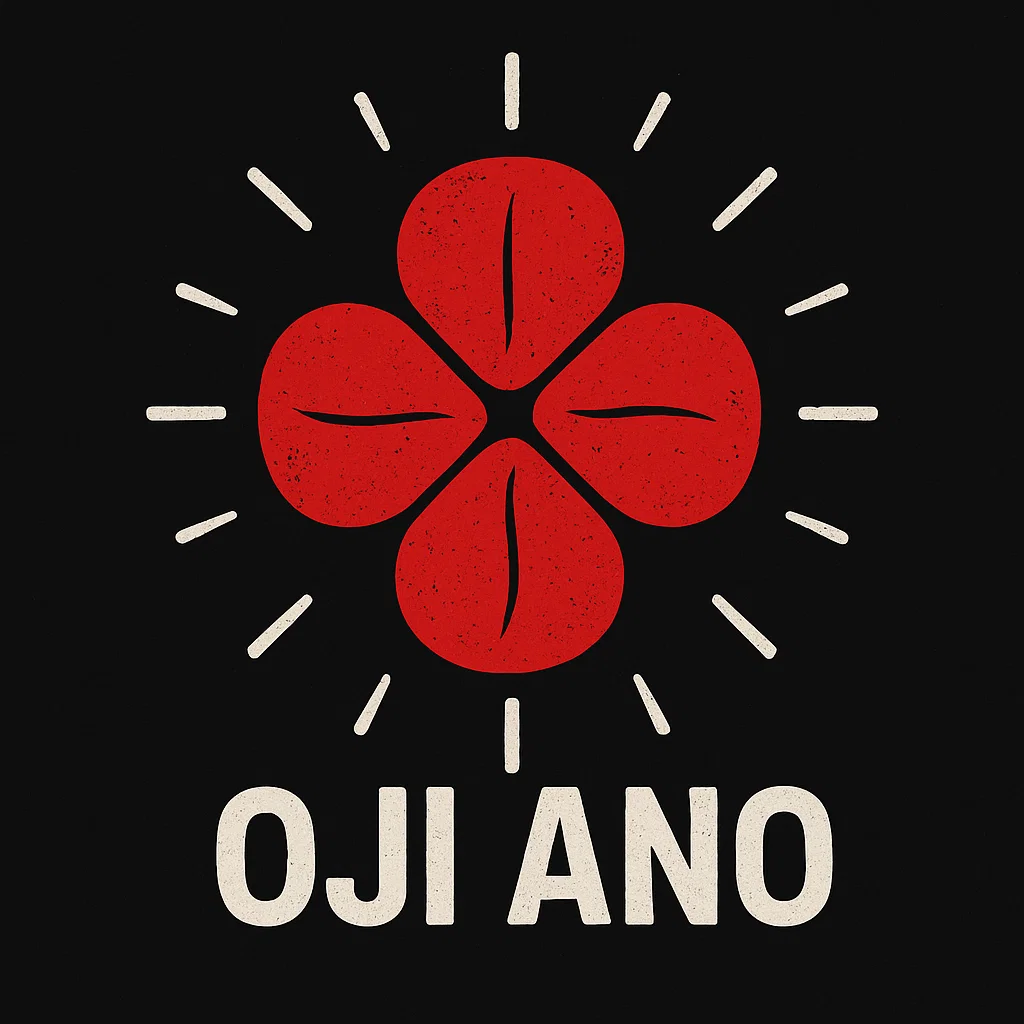A Beginner’s Guide to Igo Mmuo Ritual
This teaching is set to “Public View,” so anyone with a link can view it. Feel free to share it with others.
Igo Mmuo, also known as Ilo Mmuo, is a spiritual practice in Odinani that involves the invocation and veneration of ancestral spirits or cosmic forces known as Ezumezu Mmuo or Ora Mmuo. The goal of this ritual is to commune with the divine, engage higher frequencies, using the power of words and declarations to manifest desired realities, and to ultimately help Odinani adherents remain attuned to their higher self.
Words uttered during Igo Mmuo are potent and transformative. Consistency in this practice is key. Read this post we published on Oma’s Garden: “Igo Mmuo: Ancestral Meditation Ritual in Igbo spirituality”, to get a better basic understanding of the concept. Here, we’ll focus the intricacies.
Important Notes on the Basics of Igo Mmuo
The Power of Words and Declarations: During Igo Mmuo, words become powerful tools of creation and transformation. Declarations made during this meditation and veneration ritual carries significant spiritual weight, and it is important to utter them with reverence and intention. Consistency in practice strengthens your connection to the spiritual realm and will ultimately improve the efficacy of your practice.
Facing East to Pray: In Odinani, we face east to do Igo Mmuo. You can easily determine what direction East is by using the compass on your smart phone or one available online. East represents the direction of the rising sun, symbolizing new beginnings, clarity, enlightenment and remembrance of where Igbos emerged from. It aligns the practitioner with the cosmic order and the life-giving energy of the sun amongst other things.
Declarations, Not Begging: Unlike other spiritual practices that may involve begging or pleading, Igo Mmuo involves making firm declarations. The practitioner stands in their power and communicates with their ancestral spirits or cosmic forces confidently. However, if you feel out of alignment, or have done things you know you should not have been doing, seeking amendments is appropriate. Regardless, there is no room for guilt. In such cases make your pleas genuinely and then move on to standing firm in your divine power as one who is loved.
Essential Tools for Igo Mmuo
Having a dedicated space and the right tools is important for effective Igo Mmuo rituals. Try to store your tools in a non-metallic, non-plastic bowls reserved solely for this purpose.
Key Tools Used in Igo Mmuo:
Nzu (Sacred White Chalk)
Edo (Red or Yellow Clay)
Mmanya Oku (Hot Drink e.g Gin)
Oji (Kolanut)
Ose Oji (Alligator Pepper)
Candles
Bells
Water
Using Nzu in Igo Mmuo
Nzu is a sacred white chalk used to call upon and attract the attention of spiritual forces. It is used as a buffer for interdimensional contact. Before using Nzu, it is important to cleanse yourself with Ose Oji (Alligator Pepper). See details in this guide on Oma’s Garden: How to Use Alligator Pepper for Energetic Cleansing.
How to Use Nzu:
Forms of Nzu: It can be in solid or powdered form.
Invocation with Nzu: You can make use of Nzu for Igo mmuo by holding it in your hands and calling on your energies one by one to come and commune with you using the Nzu as a point of contact. You could sprinkle some of the Nzu while doing that, if it’s in a powdered form, or scrap on it with your thumb if it is solid. You could also just hold it in your palms.
Drawing with Nzu: When drawing lines with Nzu, always draw from bottom to top. The number of lines typically corresponds to the four market days (Eke, Orie, Afor, Nkwo), but can vary based on the practitioner's title or status. There is a belief in certain Igbo cultures that men should draw long lines because of the form of a “man’s” pee, while women should draw dotted more circular lines because of the form of a “woman’s” pee. This analogy is highly subjective (influenced by cultural context). If you feel you are mature enough to transcend such ideas then please do so.
Symbolism: Nzu represents purity, potential energy, and clarity, making it a powerful medium for communication with spiritual energies.
Using Edo in Igo Mmuo
Edo is a plant powder, or redish clay as some call it, used in Igo Mmuo to ask for peace (Udo) and to make appeasements if any forces are displeased. In a case where you cannot access Edo, using Nzu for the same purpose should suffice.
How to Use Edo:
Invocation with Edo: Sprinkle Edo or hold during the ritual to invoke peace and seek harmony with your spiritual forces.
Using Candles in Igo Mmuo
Candles are used to create a sacred atmosphere and represent the presence of light or guidance from the spiritual realm. They also serve as a point of contact or representative of the energy of the sun (Anyanwu) in your sacred space. The fire that emerges as a result of burning a candle signifies open channels to the spiritual realm and charges the atmosphere with positive energy. Read this article on Oma’s Garden: The Significance & Uses of Candles in Igbo Spirituality for more insight.
How to Use Candles:
Light candles to honor your ancestors and spiritual guides.
Use candles of different colors to symbolize or channel various intentions and energies.
Using Bells in Igo Mmuo
Bells are used to awaken and call upon higher frequencies, as their sound is believed to attract and please those energies.
How to Use Bells:
Ring the bell to mark the beginning of your Igo Mmuo, to alert your forces of your presence, also at the end of your ritual to announce your leave.
Ring the bell gently during session from time to time when you feel led to, when making declarations to summon the spirits.
Using Water in Igo Mmuo
Water is a symbol of life and purification. It can be used in libations and cleansing rituals. It can also be placed as a symbolic presence of the element of water in your sacred space.
How to Use Water:
Use water to cleanse yourself before Igo Mmuo.
Use water to wash Oji (Kolanut) or certain items before use.
Pour libations to honor your spiritual energies and ancestors.
Using Hot Drink in Igo Mmuo
Hot drinks (usually clear or transparent spirits) are used in libations to honor, strengthen or pacify spirits.
How to Use Hot Drink:
Pour into a shot glass, always fill it up.
Offer it to the spirits by pouring it on the ground, or bowl placed on the floor if you are indoors, as you make your declarations.
Take some in your mouth and blow out in four directions stating your intentions, if you wish.
Using Sweet Drinks for Ndi Ogbanje
If you identify or have been identified as an Ogbanje, sweet drinks can be used to honor and connect with these spirits.
How to Use Sweet Drinks:
Offer sweet drinks during your invocations or rituals to acknowledge or pacify Ndi Ogbanje.
Ask that sweet things come into your life as you offer them sweet things.
Using Ose Oji in Igo Mmuo
Ose Oji (Alligator Pepper) is used for cleansing, declarations and for calling in strength during meditations and rituals. Read these articles on Oma’s Garden; What Makes Ose Oji So Powerful in Odinani, and How to Use Alligator Pepper for Blessings, for more details.
How to Use Ose Oji:
Cleansing: If it is a fresh pod, do this if you prefer the cultural way: take it behind your back, then break the pod open behind your back with your left hand, then bring it forward and take out the seeds you need. Rotate the seeds round your head four times in anti-clockwise motion, while asking it to cleanse you of any negative energies, touch it all over your body or rub it on major parts like your palm. Throw it out with your left hand. See this guide on Oma’s Garden: How to Use Alligator Pepper for Energetic Cleansing.
Declaration Use: Place seven seeds in your mouth, chew or keep there while making your declarations, and spit it out into the wind or swallow afterwards.
Using Oji (Kolanut) in Igo Mmuo
Oji (Kolanut) comes in various forms and is used to beckon spirit guides, including water forces (in this case Oji Ugo, the golden or white kola nut is used) and deities. It is also used to speak life into being. Read The Metaphysics of Oji Igbo: Kolanut as an Incantation on Oma’s Garden to get a clearer understanding of what Oji symbolizes in Odinani.
How to Use Oji:
Preparation: Wash the kolanut with water and peel it if necessary.
Usage: Present the kolanut during Igo Mmuo to invoke or honor your spirits, invite them to eat the kolanut. Take the opportunity to speak words of life and fulfillment over yourself and your well being. Whatever you speak over Oji becomes law (life), break the kola. See this comprehensive guide on how to break Oji on Oma’s Garden.
When to Perform Igo Mmuo
While Igo Mmuo can be performed anytime, it preferrable and more favourable to perfrom it in the morning. Morning time aligns with what we will loosely refer to here as the spiritual "time zone," when spirits are most receptive through the energy of Anyanwu (the Sun). In Odinani, it is believed that spirits go about their own activities during the day just as we do. It is also good to set the tune of your day in the morning. Regardless, there is an Igbo saying that whenever a person wakes up is their morning.
Steps in Performing Igo Mmuo
I Saa Aka (Wash Your Hands): Clean your hands and body as a sign of purity and respect before starting the ritual.
Ituo Nzu (Drawing with Nzu): Intiate energetic purification. Show a clean heart and hand by using Nzu as a point of contact to call on your forces.
Ikpokpu Mmuo (Invocation of your forces): Call upon your Chi, the four market days, and all your spirit guides. Use their general titles if you don't know specific names.
Introducing Yourself: State your (Igbo) name, birth date (market day), parents' names, or town of origin. Do not underestimate this. It helps connect with your spiritual lineage.
Ituo Mmanya (Pouring Libation): Honor your forces by pouring them libation.
Iweta Oji or Ofo: Present the kolanut or Ofo staff to use during your declarations. If you do not have Oji or an Ofo, it is still okay to make your declarations using your Nzu or whatever you have present.
Concluding with ISE: Always seal your declarations with "ISE," equivalent to "it is so," even though you are the one speaking over yourself.
Distinction Between Igo Ofo and Igo Oji
Igo Oji: Using kolanut for blessings.
Igo Ofo: Using the Ofo (staff or emblem) for blessing.
Igo Mmuo: Direct communication with spirits.
The Importance of Acknowledgment
Calling upon your spirit guides awakens their presence and invites their guidance into your life. Naming and acknowledgments invites presence. Spirits are not necessarily in the habit of interfering in the affairs of humans without invitation. The acknowledgment of your forces that takes place during your Igo Mmuo is the invitation you give to them to interfere constructively in your life’s affairs.
Listening and Receiving
After Igo Mmuo, take some time no matter how short, to be still and listen. You can also actively ask for communication to occur in dreams or through events that take place, or channels you use, in your everyday life.
Things to Avoid Based on Cultural Context:
Always clean up before starting Igo Mmuo.
Do not discard Ose Oji seeds carelessly.
Avoid marking Nzu lines on the ground or earth in front of (living) parents.
Do not draw more than four lines on the floor if you are not titled.
Personalizing Your Practice
This introductory guide simply provides a foundational structure, please feel free to adapt it to your personal discretion, or as your spirit leads. For more specific guidance with regards to things that concern cultural context, consult with elders and practitioners in your community.
Some Proverbs & Sayings to Keep in Mind:
Ose Oji adighi eje ije ifele: Alligator Pepper does not go on a useless journey. It always delivers.
Onye wetara Oji wetera Ndu: One who brings Kolanut brings life.
Aka malu Nzu adighi ama unyi: A hand that knows or holds Nzu does not get in trouble.
Mmiri bu Ndu: Water is life.
Ike di na oku onu: There is strength or power in the spoken word.
Eke ketera anyi ifeoma: Eke bring and share good things for us.
Orie rietara anyi ifeoma: Orie make us enjoy good things.
Afor fotara anyi ifeoma: Afor shine good things on us.
Nkwo kwotara anyi ifeoma: Nkwo bless us and bring good things for us.
Ndu mmiri ndu azu, mmiri atana azu awuna: The life of water and fish are sacred (connected); water should not dry out or run out, fish should not die.
Following these guidelines can help you develop a meaningful and effective Igo Mmuo practice, deepening your connection with the spiritual world and your higher self. If you have any questions on Igo Mmuo ritual, leave a comment below. Also see the FAQ section below. Daalu!
Commonly Asked Questions
-
Yes, it certainly can. Any practice that deepens your connection with your higher self or aligns you more closely with your spiritual guide can qualify as Igo Mmuo. Traditional tools like Nzu simply help amplify your energetic interactions and make the practice more effective, they're supportive, not mandatory.
-
Yes, you absolutely can, and should, if you wish to include kolanut in your ritual. No one can connect more directly with your Chi than you. The belief that women shouldn’t break kolanut is a fallacy we will address in more details in another teaching.
-
That’s completely okay. Being mindful of your environment and personal needs is important. While sound is used to shift energy or signal spiritual intention, it doesn’t have to be a bell. You can clap, hum, snap your fingers, clear your throat, or use any sound that feels right and respectful to your space.
-
Absolutely. You could be lodged in a hotel, visiting a friend, or traveling abroad, wherever you are, your connection to spirit goes with you. You can adapt the practice to your environment, even if it’s just a quiet moment in the morning to greet your Chi and spiritual guides from the heart.























